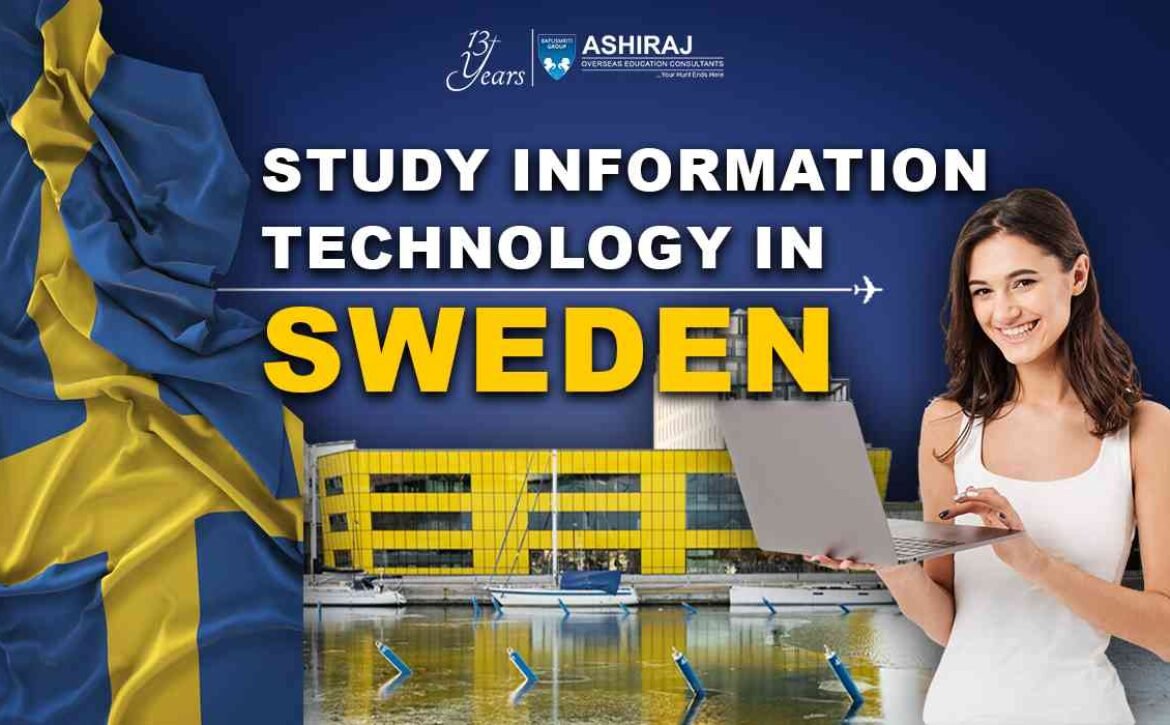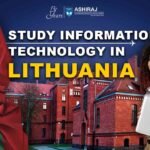
Information Technology in Sweden
Information technology in Sweden has emerged as a cornerstone of the country’s modern economy, catalyzing innovation and driving growth across various sectors. Sweden’s robust IT infrastructure and commitment to technological advancement have positioned it as a global leader in the field. With a strong emphasis on research and development, Sweden fosters a dynamic ecosystem that nurtures startups and attracts multinational corporations seeking to leverage cutting-edge technologies.
Information technology in Sweden landscape encompasses a wide range of industries, including telecommunications, software development, and e-commerce. Government initiatives promoting digitalization and investments in high-speed internet infrastructure have further propelled the nation’s IT sector forward. As Sweden continues to embrace emerging technologies such as artificial intelligence and blockchain, it remains poised to maintain its status as a trailblazer in the global digital economy.
Why to Study Information Technology in Sweden?
- Cutting-Edge Curriculum: Swedish universities offer programs that are at the forefront of technological advancements, ensuring students receive a comprehensive education in Information technology in Sweden.
- Innovative Research Opportunities: With a strong emphasis on research and development, studying IT in Sweden provides ample opportunities for students to engage in groundbreaking research projects alongside renowned academics.
- Global Recognition: Degrees obtained from Swedish universities are highly respected worldwide, opening doors to lucrative career opportunities in the international IT industry.
- Multicultural Environment: Sweden is known for its inclusive society, providing students with the opportunity to study and collaborate with peers from diverse cultural backgrounds, enhancing their global perspective.
- Access to Leading Companies: Being home to tech giants like Ericsson, Spotify, and Skype, studying IT in Sweden offers unparalleled access to internship and job opportunities with industry leaders.
- English-Taught Programs: Most IT programs in Sweden are taught in English, making it an ideal destination for international students seeking quality education without language barriers.
- High-Quality Infrastructure: Sweden boasts state-of-the-art IT infrastructure, providing students with access to cutting-edge technology and resources for their studies.
- Quality of Life: With its high standard of living, excellent healthcare, and breathtaking natural scenery, Sweden offers an enriching and fulfilling experience for students pursuing Information technology in Sweden.
Top Universities to Study Information Technology in Sweden
University | QS World University Ranking 2023 | Type of University | Average Annual Fees (SEK) | Programs Offered |
KTH Royal Institute of Technology | 35 | Public | 0 – 90,000 | Computer Science, Information Technology |
Lund University | 90 | Public | 0 – 100,000 | Computer Science, Information Systems |
Uppsala University | 120 | Public | 0 – 90,000 | Computer Science, Software Engineering |
Chalmers University of Technology | 130 | Public | 0 – 100,000 | Computer Engineering, Data Science |
Stockholm University | 150 | Public | 0 – 90,000 | Information Technology, Artificial Intelligence |
This table outlines the top universities in Sweden for Information technology in Sweden, highlighting their QS World University Rankings for 2023, type of university (public), average annual fees in Swedish Krona (SEK), and the range of programs offered in the field of Information technology in Sweden. These universities provide excellent opportunities for students to pursue quality education and advance their careers in the IT sector, emphasizing the significance of Information technology in Sweden.
Course Curriculum for Information Technology in Sweden
- Cutting-Edge Modules: The course curriculum of Information technology in Sweden is designed to cover a wide range of cutting-edge modules, reflecting the latest trends and developments in the field
- Core Subjects: Students delve into core subjects such as programming languages, database management, network security, and software engineering, ensuring a strong foundation in fundamental IT concepts.
- Specialization Tracks: The curriculum offers specialization tracks allowing students to focus on areas of interest such as artificial intelligence, cybersecurity, data science, and mobile application development.
- Practical Learning: Emphasis is placed on practical learning through hands-on projects, internships, and industry collaborations, providing students with real-world experience and skills applicable to Information technology in Sweden
- Interdisciplinary Approach: The curriculum adopts an interdisciplinary approach, integrating aspects of business management, mathematics, and engineering, to produce well-rounded IT professionals capable of addressing diverse challenges.
- Research Opportunities: Students have opportunities to engage in research projects, contributing to the advancement of Information technology in Sweden while honing their analytical and problem-solving skills.
- Industry-Relevant Skills: The curriculum is tailored to equip students with industry-relevant skills and certifications, enhancing their employability and readiness for the dynamic IT job market.
- Continuous Updates: The course curriculum undergoes continuous updates to keep pace with technological advancements, ensuring graduates remain competitive in the ever-evolving landscape of Information technology in Sweden.
Eligibility Criteria & Admission Requirements for MS in Information Technology in Sweden
- Language Proficiency: Applicants must demonstrate proficiency in English by providing either IELTS or TOEFL scores. The minimum scores required for IELTS are 6.5 overall with no band less than 6.0, while for TOEFL, a minimum score of 90 is typically required.
- Standardized Tests: Depending on the university and program, applicants may need to submit GRE or GMAT scores. The average GRE scores accepted range from 310 to 320, and for GMAT, scores around 600 to 700 are typically required.
- Academic Certificates: Applicants must provide academic certificates, including transcripts and diplomas, to demonstrate their educational qualifications. A bachelor’s degree in a related field is usually required for admission to master’s programs in Information Technology in Sweden.
- Work Experience: Some programs may require or prefer applicants to have relevant work experience in the field of Information Technology. Typically, 1-2 years of work experience is recommended but not mandatory.
- Passport & Student Visa: International applicants must possess a valid passport and obtain a student visa to study in Sweden. The visa application process involves providing proof of acceptance to a Swedish university, financial means, and health insurance coverage.
Here’s the table format for IELTS/TOEFL and GRE/GMAT scores:
Test | Minimum Score |
IELTS | Overall 6.5 |
Minimum band score: 6.0 | |
TOEFL | Minimum 90 |
GRE | Average 310-320 |
GMAT | Average 600-700 |
These eligibility criteria ensure that applicants have the necessary language proficiency, academic background, and standardized test scores to succeed in Information Technology in Sweden programs.
Documents Required for Studying Information Technology in Sweden
- Passport: A valid passport is essential for international applicants to study in Sweden, serving as proof of identity and nationality.
- Letters of Recommendation (LOR): Two letters of recommendation from academic or professional references are typically required, highlighting the applicant’s qualifications and character.
- Statement of Purpose (SOP): An SOP provides insights into the applicant’s academic and career goals, reasons for choosing the program, and how it aligns with their aspirations in Information technology in Sweden.
- Curriculum Vitae (CV): A comprehensive CV outlines the applicant’s educational background, work experience, skills, and achievements relevant to the field of Information Technology.
- Official Transcripts & Educational Certificates: Applicants must submit official transcripts and educational certificates, including high school transcripts and bachelor’s degree certificates, to demonstrate their academic qualifications.
- Work Experience Certificate: If applicable, a work experience certificate detailing relevant professional experience in Information Technology is required.
- Proof of Financial Resources: Applicants need to provide proof of sufficient financial resources to cover tuition fees, living expenses, and other costs during their studies in Sweden, ensuring they can sustain themselves while pursuing Information technology in Sweden programs.
These documents play a crucial role in the application process for Information Technology programs in Sweden, demonstrating the applicant’s academic credentials, qualifications, and readiness for higher education in the field.
Admission Process for Information Technology in Sweden
- Research: Begin by researching universities in Sweden offering Information Technology programs and identify the ones that best align with your academic and career goals in Information technology in Sweden.
- Check Eligibility: Review the eligibility criteria for the programs of interest, including language proficiency requirements, standardized test scores, and academic qualifications.
- Prepare Documents: Gather the necessary documents, including academic transcripts, letters of recommendation, statement of purpose, curriculum vitae, and proof of financial resources, ensuring they meet the requirements for Information technology in Sweden.
- Submit Application: Complete the online application form for the chosen universities and upload all required documents through the university’s admissions portal within the specified deadline.
- Pay Application Fee: Pay the application fee as per the university’s instructions to process your application for Information Technology programs in Sweden.
- Wait for Response: Await the university’s response regarding your application status. This may take several weeks, so be patient during the evaluation process for Information technology in Sweden.
- Interview (if required): Some universities may conduct interviews as part of the selection process for Information Technology programs in Sweden. Prepare for the interview by familiarizing yourself with the program and highlighting your strengths and motivations.
- Receive Offer: Upon acceptance, you will receive an offer letter from the university detailing the conditions of admission and any additional steps required before enrollment in Information technology in Sweden.
Following these steps diligently will help streamline the admission process for Information Technology programs in Sweden, paving the way for a successful academic journey in the field.
“Education is the most powerful weapon which you can use to change the world.”
Nelson Mandela
Cost of Information Technology Course in Sweden
- Tuition Fees: The tuition fees for Information Technology programs in Sweden vary depending on the university and the level of study. On average, international students can expect to pay between SEK 80,000 to SEK 150,000 per year for tuition, emphasizing the financial aspect of Information technology in Sweden.
- Living Expenses: In addition to tuition fees, students need to budget for living expenses, including accommodation, food, transportation, and miscellaneous costs. The average monthly living expenses in Sweden range from SEK 8,000 to SEK 10,000, highlighting the importance of financial planning for Information technology in Sweden.
- Scholarships and Funding: International students may be eligible for scholarships and funding opportunities offered by Swedish universities, government organizations, and external foundations to help offset the cost of studying Information Technology in Sweden.
- Part-Time Work: Some students opt to work part-time to supplement their income while studying in Sweden. However, it’s essential to balance work commitments with academic responsibilities to succeed in Information technology in Sweden.
- Health Insurance: All students studying in Sweden are required to have health insurance coverage. International students can either obtain private health insurance or enroll in the Swedish national health insurance program, adding to the overall cost of studying Information technology in Sweden.
Considering these factors can help students plan and budget effectively for the cost of studying Information Technology in Sweden, ensuring a smooth and financially manageable academic experience.
Scholarships for Information Technology Courses in Sweden
Scholarship Name | Amount (SEK) | Application Deadline |
Swedish Institute Scholarships | Full tuition + SEK 10,000/month stipend | January 15th |
Karolinska Institutet Global Master’s Scholarships | Tuition fee waivers | January 15th |
Chalmers IPOET Scholarships | 75% of tuition fees | January 15th |
Uppsala University Global Scholarships | 25-50% of tuition fees | March 1st |
Lund University Global Scholarships | 25-100% of tuition fees | February 15th |
These scholarships provide financial assistance to international students pursuing Information technology in Sweden programs, covering tuition fees and living expenses. The application deadlines typically fall between January and March, emphasizing the importance of applying early for Information technology in Sweden scholarships to increase the chances of receiving funding.
Career Opportunities After Information Technology in Sweden
Job Profile | Average Salary (SEK/month) |
Software Developer | 45,000 – 55,000 |
IT Consultant | 50,000 – 65,000 |
Data Analyst | 50,000 – 60,000 |
Network Engineer | 45,000 – 60,000 |
Cybersecurity Analyst | 55,000 – 70,000 |
These are just a few examples of the lucrative career opportunities available after studying Information technology in Sweden. With a strong emphasis on innovation and technology, Sweden offers a vibrant job market for IT professionals. The average salaries mentioned above highlight the earning potential in various IT roles, attracting both domestic and international talent to pursue careers in Information technology in Sweden.
Frequently Asked Questions About Information Technology in Sweden
Some of the top universities in Sweden for Information Technology include KTH Royal Institute of Technology, Lund University, and Chalmers University of Technology.
Yes, most Information Technology programs in Sweden are taught in English to accommodate international students.
Information Technology graduates in Sweden have excellent job prospects, with opportunities in software development, IT consulting, data analysis, cybersecurity, and more.
While knowing Swedish can be beneficial, many IT companies in Sweden operate in English, making it possible to work in the sector without fluency in Swedish.
Yes, there are scholarships available for international students studying Information Technology in Sweden, offered by universities, government organizations, and external foundations.
The average salary for Information Technology professionals in Sweden varies depending on the role and experience level but generally ranges from SEK 45,000 to SEK 70,000 per month.
A Master’s degree in Information Technology in Sweden typically takes two years to complete, consisting of four semesters of study.
Admission requirements for Information Technology programs in Sweden may include academic transcripts, standardized test scores (such as GRE or GMAT), letters of recommendation, a statement of purpose, and proof of English proficiency.
Yes, international students studying Information Technology in Sweden can work part-time during their studies, typically up to 20 hours per week during the academic year and full-time during scheduled breaks.
Information Technology students in Sweden have access to various research opportunities, including participation in university-led projects, collaborations with industry partners, and internships at research institutions.




